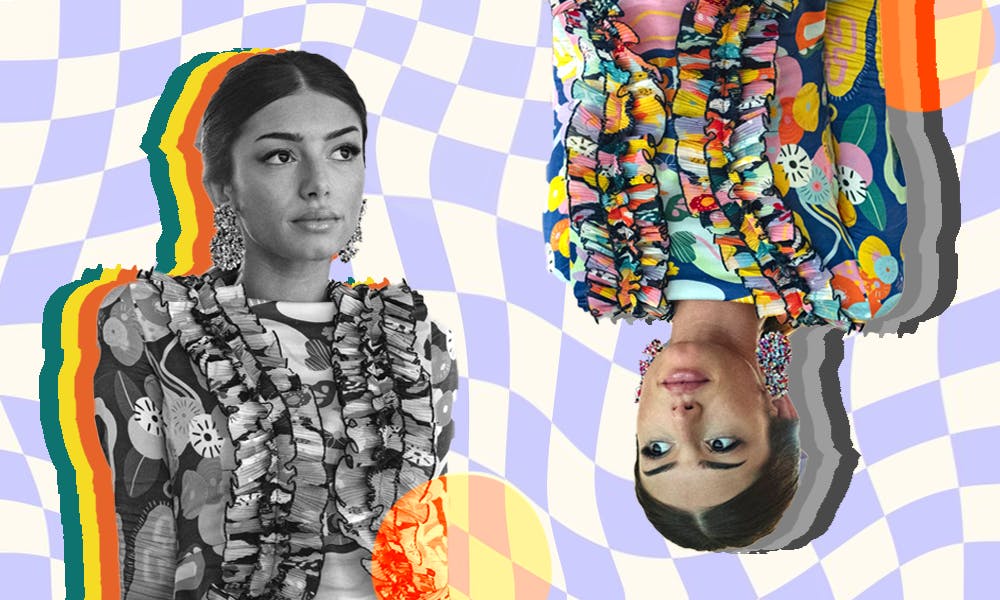Contrary to popular belief, Halloween is not just an excuse for women to dress up as hot female characters. Upon closer inspection, only a select few make the cut: The timeless contenders that make the top of the list every year include Regina George from Mean Girls, Cher Horowitz from Clueless, Jennifer Check from Jennifer's Body, and any variation of Harley Quinn. Categorically, they are either the hyper–feminine mean girl or the unhinged psychopath. It may be worth asking: Why do we gravitate towards these female characters?
The mean girl manifests herself as the cheerleader, the clique ringleader, the vapid barbie reincarnated. She's created for the sole purpose of being villainized. We see this archetype in Mean Girls as Regina George, in High School Musical as Sharpay, and in Heathers as Heather, just to name a few. At its peak, the denigration of hyper–femininity proliferated within pop culture and hyper–femininity soon became conflated with villainess. In Mean Girls, Regina’s beauty and confidence is wielded as a weapon to maintain her social status in high school and to reign over others. She’s portrayed as manipulative, shallow, cunning, and malicious.
Flash forward to today, the very girl that we villainized seems to have climbed up the ranks—she’s the it girl now. The faces of this phenomenon are Maddy Perez from Euphoria and Ruby Matthews from Sex Education; both of whom are reminiscent of the iconic female leads Cher Horowitz and Elle Woods. Indeed, Legally Blonde and Clueless were decades ahead of their time in the way that they represented these traditionally superficial stock characters as multifaceted, accomplished, and intelligent women. Their narratives teach us that women don't have to sacrifice their femininity in order to succeed. In Legally Blonde, Elle is ostracized by other students at Harvard simply because of the way she presents herself: To them, wearing pink and shopping are perceived as weaknesses.
A shift in the female narrative can be seen in the critical reevaluation of Jennifer’s Body. In a post #MeToo world, Jennifer’s Body is no longer the sex fantasy film for straight boys, as it was initially marketed, but rather a feminist cult classic. After a traumatic night alone with a boy band, Jennifer Check becomes possessed, wreaking bloody vengeance on boys. In this way, Jennifer’s Body offers a cathartic fantasy in response to trauma not dissimilar to sexual assault. In the same vein, Promising Young Woman offers a revenge fantasy that follows Cassie Thomas, the protagonist, as she seeks to avenge the death of her best friend who committed suicide shortly after a classmate raped her in college. These are the women we turn to when we say, “good for her.”
The phrase "good for her" originates from a viral Arrested Development screencap in which the infamous icon Lucille Bluth watches a news report about a mother who lets her car roll into a lake with her kids trapped inside. The cultural impact of this scene and the wider subgenre reflects the feeling of satisfaction women feel when a female character realizes their desires—however wholesome or detrimental that may be.
But not all bloody revenge slasher films with angry women are feminist films by default. What happens if the woman is truly the villain? Why are we still drawn to these female characters?
Amy Dunne from Gone Girl is undeniably a psychopath who elaborately plots to punish the men that have wronged her. Amy, instead of being constrained by her gender expectations, exploits common tropes of femininity in order to gain agency over men and the patriarchal institutions that oppress her. She plays into the damsel, the mother–to–be, the “cool girl,” as she embodies and simultaneously subverts these feminine ideals. Amy reasons: “Nick Dunne took my pride and my dignity and my hope and my money. He took and took from me until I no longer existed. That’s murder.” To avenge her loss, she decides to frame her husband for murder. So, can we really say “good for her”? Consider this: Perhaps, the cathartic reaction to watching a female villain getting what they want doesn't diminish the moral severity of her actions but instead speaks to what it feels like to relinquish women from the expectations that behold them.
Whichever girlboss you choose to dress as—a hot girl, an unhinged maniac—just know that it’s a reasonable choice. Above all else, the most terrifying thing a woman can do this Halloween is to subvert the expectations society has made for her.







